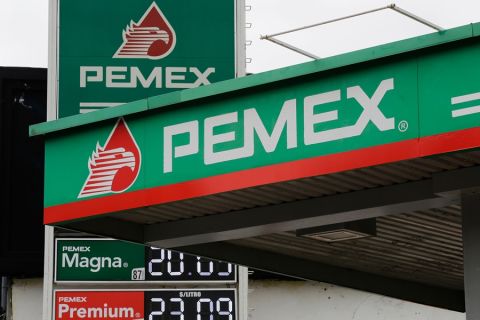U.S. pipeline company Equitrans Midstream Corp. said on Oct. 26 that an arbitration panel ruled in its favor in a dispute with EQT Corp. over the delayed startup of the Hammerhead natural gas pipe in Pennsylvania and West Virginia.
Hammerhead is a gathering pipeline designed to feed about 1.6 Bcf/d of gas into the Mountain Valley pipe once that long-delayed project enters service.
Equitrans said the 2-Bcf/d Mountain Valley pipe from West Virginia to Virginia was on track to enter service in the summer of 2022 at a cost of around $6.2 billion.
Equitrans has said Hammerhead cost about $555 million to build. EQT, the biggest U.S. gas producer and former parent of Equitrans, has a contract to transport about 1.2 Bcf/d on Hammerhead.
In a filing with the U.S. Securities and Exchange Commission, Equitrans said the arbitration panel determined the in-service delay for Hammerhead was caused by a force majeure.
Hence, EQT has no early termination right under the Hammerhead agreement or related right to purchase the Hammerhead project, according to the Equitrans filing.
“We are pleased with the panel’s unanimous decision (and) look forward to continuing our long-standing partnership with EQT,” Equitrans spokesperson Natalie Cox said in an email, noting Hammerhead has been "ready and waiting" for the completion of Mountain Valley.
EQT said in an email that it was “disappointed” but appreciates “having a resolution to this dispute.”
Mountain Valley is one of several U.S. pipelines delayed by regulatory and legal fights with environmental and local groups that found problems with federal permits issued by the Trump administration.
When Mountain Valley started construction in February 2018, it estimated the 303-mile project would cost about $3.5 billion and enter service by late 2018.
Mountain Valley is owned by units of Equitrans, which has a 47.8%-interest in the project and will operate the pipeline, NextEra Energy, Consolidated Edison, AltaGas and RGC Resources.
Recommended Reading
US Orders Most Companies to Wind Down Operations in Venezuela by May
2024-04-17 - The U.S. Office of Foreign Assets Control issued a new license related to Venezuela that gives companies until the end of May to wind down operations following a lack of progress on national elections.
EU Expected to Sue Germany Over Gas Tariff, Sources Say
2024-04-17 - The German tariff is a legacy of the European energy crisis that peaked in 2022 after Moscow slashed gas flows to Europe and an undersea explosion shut down the Nord Stream pipeline.
Pemex to Remain Fiscally Challenged for Mexico’s Next President
2024-04-16 - S&P Global Ratings said Pemex will remain a fiscal challenge for the country’s next president, adding that continued cautious macroeconomic management was key in its ratings on both Mexico and Pemex.
Yellen Expects Further Sanctions on Iran, Oil Exports Possible Target
2024-04-16 - U.S. Treasury Secretary Janet Yellen intends to hit Iran with new sanctions in coming days due to its unprecedented attack on Israel.


